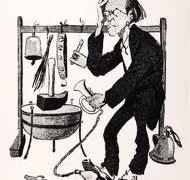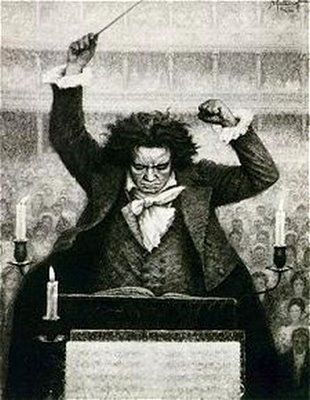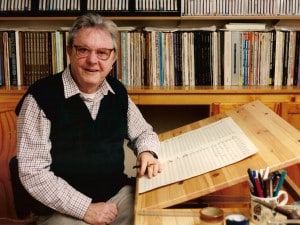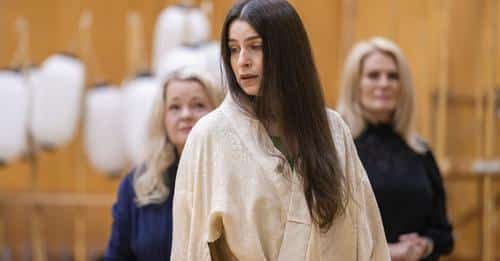Mahler would have hated the modern Vienna Philharmonic
NewsIn the new issue of The Critic, I write about an attempt to perform Mahler’s ninth symphony on instruments that he hand-picked:
….Mahler was a stickler for timbre. As Director of the Vienna Opera, he replaced all the orchestra’s wind, brass and percussion instruments, declaring them unsuited to the volume, velocity and sophistication of Richard’s Strauss’s shocking new operas and his own universalist symphonies, drifting as they were to the brink of atonality.
Other traditions were left unchanged. His violinists used no shoulder rest and cellists played with a short pin, yielding less hand-made vibrato but more stage-floor vibrations. The halls Mahler occupied were rectangular, producing a tighter acoustic than a modern hall, geared to flexibility. Mahler tailored every performance to the state of the hall. ‘If (my music) doesn’t work,’ he told the young Otto Klemperer, ‘change it. You have the right – no, the duty – to change it.’ He was also fond of saying that the music ‘is not in the notes’. Every player and listener must figure out where to find it. Human agency is paramount in Mahler performance…
Read on here.






Not a fan of forensic original instrument, low vibrato Romantic repertoire performances. For original Mahler sound and style….Klemperer, Walter, Mengelberg. They knew him well. For original Franck….Montreux with the Chicago Symphony. He was at it’s premiere. These chaps knew how the music goes and should sound.
I couldn’t possibly disagree more. As a brass player, I honestly feel that the brass playing is, at times, about three times too loud on the famous Monteux/Chicago recording of the Franck d-minor . . . ‘good’ as that playing is. I can think of nearly a half-dozen French recordings of it that I feel are more idiomatic. For starters, the Bernstein/L’Orchestre National de France one has a lighter, more ‘joie de vivre’ feel to it. Ozawa/Boston is surprisingly good too.
This sounds riveting and fascinating. Is the Soundcloud link you mentioned in the article publicly available?
The instruments and playing techniques in the ’50s and ’60s weren’t much different than today, and the instruments then were much improved over Mahler’s time. So…why did people who conducted Mahler and were witness to the changing instrument qualities not say anything? Bruno Walter, Otto Klemperer, Herman Scherchen, just to name three would have been aware of the differences. I think Mahler would have been thrilled with the sonic improvements and the power of a modern Vienna Philharmonic.
I would be interested to hear this. I have a concept of old Mahler sounding more like wood, with modern performance more like steel. If that makes sense.
Historically informed performance on authentic instruments moves into the early twentieth century! Bravi tutti.
Already has, at least a couple decades ago.
Quite the contrary.As you suggest,he replaced the old instruments of the then VPO with new ones,producing a bigger sound.I think he would have readily and gratefully embraced the advance of new,better instruments ,and of course,better players.I remember performances of the 5th in the 60s and 70s when the trumpet solo at the start even with famous orchestras was mostly a train wreck…Today ,a student player like the fantastic Shea Kelsay in Tanglewood this year delivers a flawless,absolutely stunning performance ,both in technical and musical terms….Mahler always was a man of the future who didn´t cling on the past,or even his present times….
While we on the subject of Mahler and Otto Klemperer, the latter was asked by Walter Legge between Bruckner and Mahler, which one was greater. “Of course Bruckner.”, “Then why have you played more Mahler?”, “He gave me my first job.”
As heard on the Nikisch Beethoven 5 recording, there is zero string vibrato. But you wouldn’t know that if you believed everything a certain muppet music critic says who gets themselves into a tizz every time the topic is mentioned. So much for self proclaimed ‘know-it-alls’.
Mahler would have described the present Vienna Philharmonic, as schlamperei. And would have laughed with tears in his eyes at the appalling standard of conductors today, with their bland, cookie cutter interpretations and amateurish musicianship.
Listen to the VPO in the 30s(the Mahler 9 under Walter) and well into the 60s,then you know what “Schlamperei”is.They simply couldn´t play it….The Beethoven 5 under Nikisch…..well in my free time i conduct an amateur orchestra of senior citizens for charity….Even they play it better….This recording is the equivalent of Florence Foster Jenkins in the orchestra world…..
Please upload your orchestra’s Beethoven 5 to YouTube. I would love to be able to make the comparison. (Nikisch’s handling of tempo is fascinating – of course nobody would dare do this sort of thing now.)
Toscanini heard the Nikisch Beethoven 5th of 1913 in 1943 and quite apart from the outdated sonics declared it to be a complete falsification of how Nikisch conducted and sounded in performance, and he specifically mentioned tempos. Consider the circumstances of recording large orchestra works in the acoustic era. So many instruments were left out because they simply didn’t “sound” — and often were replaced by band instruments, so you might not have really been hearing the Berlin Philharmonic. Normal seating would not have suited the recording “horn.” Roland Gelatt’s book says there were 6 violins and 2 violas, for example. Important solos required the player to race to the recording horn and then back off.
The greater the artist the less mindful they were to the ironclad demands of the 78 rpm side, and evidently one task of a record “producer” back then was to start waving their arms at the conductor to pick up the pace as the end of the 78 rpm side neared. You can hear that happen at the end of Ysaÿe’s acoustic recording of the Mendelssohn Concerto finale. If Toscanini is a reliable judge, it would seem the same may have happened during the Nikisch Beethoven sessions.
If you want to hear how Mahler expected the Vienna Philharmonic to sound, listen to the recordings, particularly to the quartet recordings, of his brother in law, Arnold Rosé, longtime concertmaster of the orchestra. Vibrato when it is present at all is very sparingly applied. When combined with the dead acoustic of even his electrical 78 rpm era one can hear that while Rosé’s intonation was praised in his time, to our ears it sounds like the intonation needs help. Szigeti wrote of how shockingly different the rich vibratos of Kreisler and Elman sounded to him in his youth circa 1900, a reminder that Fritz Kreisler applied for and was denied a seat in the Vienna Philharmonic, not due to any lack of technique or musicianship but that new fangled perpetual vibrato of his. And the man who turned him down was Arnold Rosé.
Nikisch´s tempo is ridiculous.It should be a very fast Allegro con brio in one….But apart from that….The playing is laughable..Everone plays for himself,nothing is together,there is no common intonation at all….Did they bother to tune before the session started? Absolute joke.
Your sweeping,ridiculous little rant about todays conductors disqualifies you for any serious discussion…..me and my orchestral colleagues laugh with tears in our eyes at this utter nonsense…Thank you for delivering us a good laugh in our concert break
Very fascinating. In the worst case, period instruments complement urtext editions: they enhance our understanding of the composer’s notation. We can then make better informed interpretive choices, even on modern instruments.
Does anyone have an opinion on the Mahler recordings with Les Siècles under François-Xavier Roth?
Roth´s recording is quite fascinating.For me,not so much because of the instruments(I don´t care much for those),but because of his wonderful,transparent and colorful interpretation.
Thank you.
You made me sample the finale of Mahler’s 1st symphony. I too enjoyed the transparent and colorful textures. I believe that they are significantly helped by the choice of instruments’ differentiated timbres.
Partly,yes…but Mr.Roth achieves this luminous clarity with every band,be it with his other band th Gürzenich Cologne,the LSO,or the Berlin Phil….
I doubt it.
The VPO is presently an outstanding orchestra and I am positive that Mahler would have loved it.
This was very interesting. Thanks.
Already the word “hated” stops me from reading on. I’m pretty sure the gentle Mahler was not a hater.
Mahler and”gentle”?LOL…..He was an absolute dictator on the podium.
Video here…..
https://youtu.be/haHc6A47mkQ
Nice article! I wonder what Mahler would say about attempts to play his music with electronic digital instruments…
… and: best wishes for recuperation of your knee!
Refreshing quotes, thanks for sharing these. The last 30 years has seen a domination of the literalist, academic-minded cognoscenti infect classical music. “What did the composer intend” was a mantra I have heard repeated over and over again, and of course that is a good question. But far too often, that question is merely a thinly veiled cover. Classical music was never meant to be a museum piece, and Mahler’s quotes here perfectly illustrate how limited that view is.
I distinctly remember a quote (no doubt someone here will provide it or correct me) of Mozart on tour writing back home enthusiastically after seeing an uncharacteristically large orchestra perform one of his symphonies. Yet our modern, prevailing thought is always to trim the size of forces for Mozart performances, an easy way to manage “balance” and other considerations.
The faux adaptation of the “what did the composer intend” question has helped enable many otherwise weak or unnatural musicians who proclaim to have “the correct answer” upon the art form. They use their own interpretive quirks as a crutch (or special areas of interest and research, like Beethoven metronome marks). Rather than needing to demonstrate good innate musicianship, mastery of an instrument, mastery of phrasing, etc. they have been permitted to hide behind these ideologies. While sometimes the ideas are interesting, much of what might sound good in an academic paper fails the tests of practical execution.
Scholars are unfortunately quite often divorced from the practicalities of performance art and how that music is executed. Too often, their tireless research sets out to prove that “my studies show that this path alone is the TRUE way” and unfortunately our academic system incentivizes that. But here, we have a composer as exacting as Mahler saying it is one’s “duty” to adapt a performance to its circumstance? Do we really think Mozart, Beethoven, Haydn, and Brahms would have thought that much differently? And wouldn’t circumstances extend to new instruments, new spaces, new types of performances?
Orchestras used to love to perform baroque music with larger forces, but I’d argue that most traditional conductors are now too afraid to program it, sadly leaving it to the “specialists” for fear of what the academic and early performance cognoscenti will say. Karajan’s BPO recording of Albinoni’s Adagio in G minor might be blasphemy to the purists, but a lot of people, myself included, find it quite beautiful. And how about the immoral transcriptions of Leopold Stokowski? Ban that explicit sonic pornography!
On the other hand, of course there are ridiculously liberal excesses, particularly by the directors of opera turning their productions into a grotesque horror show that typically reflect the director’s own ideology, politics, or social leanings. That should be avoided at all costs.
What’s been left behind today is the audience, one that for the most part should be there to listen, think and reflect about what they are hearing. I remember hearing Neeme Järvi say to a conducting student on the podium something to the effect of, “if you want to do something, do it!” I hope to hear more of this type of spontaneity in the future, and less of “this is the right way”. I think audiences do, too.
I believe you are referring to the occasion when Mozart wrote excitedly to his father from Paris, where he had heard the orchestra performing with 30 violins during a prior visit. He was delighted by the sound and brilliance, and the result was his “Paris” Symphony in D major, KV 297, written for and performed there in 1778. It seems he loved the sound of a large string section.
Who cares what Mahler would have thought? No, really.
Actually,you´re right.Music evolves ,as human beings do…Every piece is an eternal work in progress,and Busoni was right in stating every performance is actually a transcription.Otherwise we could stop live performances.
While I’ve heard great Mahler performances with orchestras from all over the world, the best ones I’ve heard with the Vienna Phil. have been quite special. Particularly memorable for me were Mahler 5 with Bernstein/V.P.O. (much better than the DG issue of it), and Mahler 6 with Bychkov/V.P.O. Both of those were ‘on tour’ performances in the S.F. Bay Area. I also saw Maazel conduct them in Mahler 4, very late in his life. The tempi were on the slow side, but the main climaxes to the first and third movements were really something. I truly believe, NL, that it would benefit you, in the long run, to get off of your anti-Vienna high horse. That’s just an opinion.